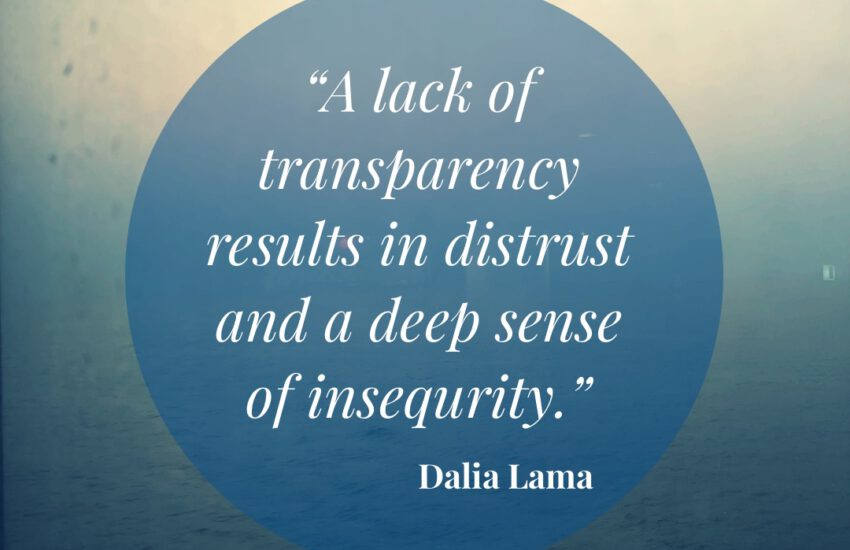From a Colleague to LEAD
To be honest, I had imagined the transition from colleague to lead much easier. Maybe you felt the same way or currently in this situation, but especially in the beginning it was quite a balancing act. On the one hand, you’re still very much stuck in operational „previous“ tasks that have to be handed over or completed, and on the other hand, you now have new exciting tasks that you have to familiarize yourself with. You also want to make a good impression and, above all, get the team on your side. You stumble between old and new tasks and work a lot more, especially in the beginning. It becomes even more difficult when there is no one who can take over the old tasks and you are caught between two worlds. Sound familiar?
Don’t worry. One thing I can promise is that it will get better and things will change for the good. But I’ll also be honest, it’s also quite a bit of hard work. But who has come so far can not be stopped by it, right?
The difficulty at the beginning is to put aside the old tasks and also behaviors and to slip into a „new role“. This is because the old tasks offer us a kind of security in the beginning (we know what we have to do & how to do it) and so we may stick to them. The same is true for behaviors. Don’t worry at all – this is a normal process. It is not said for nothing that you have to grow into a new role.
Let me tell you how I experienced the transition to my new role as a lead and you will probably see many parallels. One thing I can tell you is that with all the new challenges you face as a new leader, you are not alone. When I started to talk to other leads, I realized that many of them were facing the same challenges and I felt a little less stupid 😉 So I already want to encourage you, talk to other leads. It helped me a lot.

I would say the circumstances for my team and me were not the best at the time I was promoted. We had just gone through several restructurings. We had no lead for quite a while, then had someone very briefly, and then we were on our own again. It was an up and down for more than a year, which had bonded us three colleagues very strongly. When I was offered the Team Lead position, I spoke openly with my two colleagues and they agreed – however, accepting the position changed some things for me I hadn’t considered.
As Team Lead, I was their superior and that’s how I was suddenly treated, or sometimes not. The team as well as I had difficulties in the beginning to find the balance, to what extent I could fool around with them as a colleague and when they crossed the line and I had to act as the lead. Was it sometimes still allowed to complain or blaspheme about situations and people in the same way as before? Or would there be consequences for them?
Especially in the beginning there will be situations where you are unsure what to do, how to behave and maybe fall back into your old behavior (for me just being a colleague & best buddy) or you will notice the reaction that others find it strange that you behave differently. Here are some situations that can happen:
Being forgotten or ignored in the new role
People are creatures of habit, so in the beginning it will happen very often that you are forgotten and your colleagues and team members have to get used to when and how they have to involve you. Since we had been working for a while without structures and team leads, it took a while until everyone got used to seeing me as a contact person. It happened that colleagues or team members worked in their old patterns and I was ignored. The only thing that helped here was to stay calm, not to take it personally or even to act bitchy, but to communicate clearly and unambiguously that the process has to be different next time. You will see after a while it will be normal for everyone to loop you in and to know your responsibilities.
And if they don’t do it after all? Then I sometimes try the saying “ Those who can’t hear must feel“. Don’t get me wrong – I don’t want to call for violence here. It is to be understood more in such a way that some people must make their own experiences and/or run against the wall before they understand why one recommends something or would be important to involve one. Of course you have to evaluate if you can afford it in your situation/project. In my case it was a team member who worked around me in the beginning and was under the misconception that I wouldn’t notice. Instead of reporting that there were problems with the post-production (section of a campaign where the images or video are edited) and we needed more time than estimated, she simply approved it herself. The person didn’t consider that this also meant more costs – especially when working with outside service providers and the invoice had to be approved by me or my boss. I discussed the situation with my boss and we decided to wait and see how the person would act. Of course, we both had an eye on the costs. With the bill from the outside service provider, the person then arrived remorseful and asked for help. She had put herself in a very difficult position and luckily learned from it.
It’s not always easy to watch others run against the wall and it also annoyed me when someone acted over me (yes, I too have an ego that sometimes comes up). The only thing I can recommend here is to talk to other team leads/leaders about such challenges. You will be surprised how many have experienced a similar situation. In addition, I have also talked about situations with my friends from time to time (without mentioning names or going into too much detail, of course). Their outsiders point of view and very direct honest opinion has helped me several times to better understand the people and their actions.
With some candidates, unfortunately, „running against the wall“ does not help. Here it only helps to intervene directly, to talk openly with the person about it, to understand why they act the way they do (quite often because they are afraid that responsibility will be taken away from them) and in the last step to point out consequences for their actions. Some people are not aware of these at all and need an outside person (such as someone from HR or the next higher supervisor) to understand their situation and behaviors. I’ve never had to go that far, fortunately, but I’ve also reached out to my bosses for advice and help a few times. You shouldn’t be ashamed of this but rather talk openly with them about the challenges. Assuming you have bosses with whom you can talk openly about it. I can also recommend getting advice from other managers. In my experience, many are happy to be given the trust you place in them and are happy to give advice.
Excluded from your “old” Group
If you previously worked very closely with your colleagues and then suddenly find yourself above them in the hierarchy, it can happen that your relationship changes. As a lead, you’re suddenly working with a different group of people and doing completely different things. You’re not always allowed to talk about everything, and so the relationship automatically changes a little. In my case, it hurt a little bit. The team founded a new group chat or met privately without inviting me, as they did before. Especially in the beginning, when you don’t quite know how to behave, it can make you feel insecure. I spoke to them directly about it and they weren’t aware that I had taken it that way. I have made very good experiences in openly addressing things with the team and discussing them with them. After half a year, I had arrived in my new position and rejoined the previous group. It turned out that they also didn’t really know how to reconcile our already rather friendly relationship with my lead position. Today they know that one does not have to exclude the other.
Being between the worlds
As I described before, the difficulty when you are promoted internally to a lead in the same team is that the tasks you had before don’t disappear from one day to the next. Usually there is a transition phase in which you try to manage both positions. Here, those who are recruited from the outside or change companies have an advantage, although this might hold completely different challenges. You automatically try to please everyone and manage everything. My tip, try to hand over and delegate things as quickly as possible. Managing both positions at the same time doesn’t work and I speak from experience. I have managed several campaigns operationally and could not focus 100% on my new team lead position. This also makes it difficult for the team to accept your new position and responsibilities.
Getting resistent
Dare to change things and do things differently than your predecessors. Bring in your own ideas. It may be that your team members show a little resistance at the beginning or find it stupid… but that is usually the typical change management process. (Very high level explanation: We find it all stupid at first because we don’t like it when things change. Then it usually gets worse before we try it and see that it is much better than we thought). A smart move by my former boss, when I was completely against a change and got to feel my frustration, she showed me the change management curve and where I was in the process. I was very perplexed but it helped me shorten the curve. 😉

Today, when I look back on my early days as a lead after almost two years, I have to smile and wonder what I was worried about. Of course, there were many unexpected situations or challenges for which I was not prepared, but looking back, I can say that I have just grown from them. It’s a new adventure and you’re not alone on the journey. Today I can proudly say it is my favorite one. Be open and curious. Don’t be afraid to admit when a situation is new to you – most people feel the same way. And have fun trying new things and developing yourself. You didn’t just get the job, you got it for a reason. Welcome to the world of leading people!
This article is written to support and inspire all new leads and especially one of my colleagues who is now getting the chance to be an awesome team lead! I know the beginning is hard because you are working in two worlds, but but hold on, give yourself time and you will realize that it is the most rewarding job in the world!
My advice:
- Don’t get insecure or take it personally when colleagues/team members suddenly cut the cord.
- Look for other team leads/leaders as exchange partners. You’re in a new „club“ now and it’s nice to share or debate with like-minded people.
- Give yourself time. It can take a little time to get yourself (and colleagues) used to the new role.
- Talk openly with your boss about the challenges or seek advice from other leaders
- Believe in yourself – You got the position for a good reason. Now it’s time to prove that you can execute the role and use it to earn the trust and respect of others anew.

